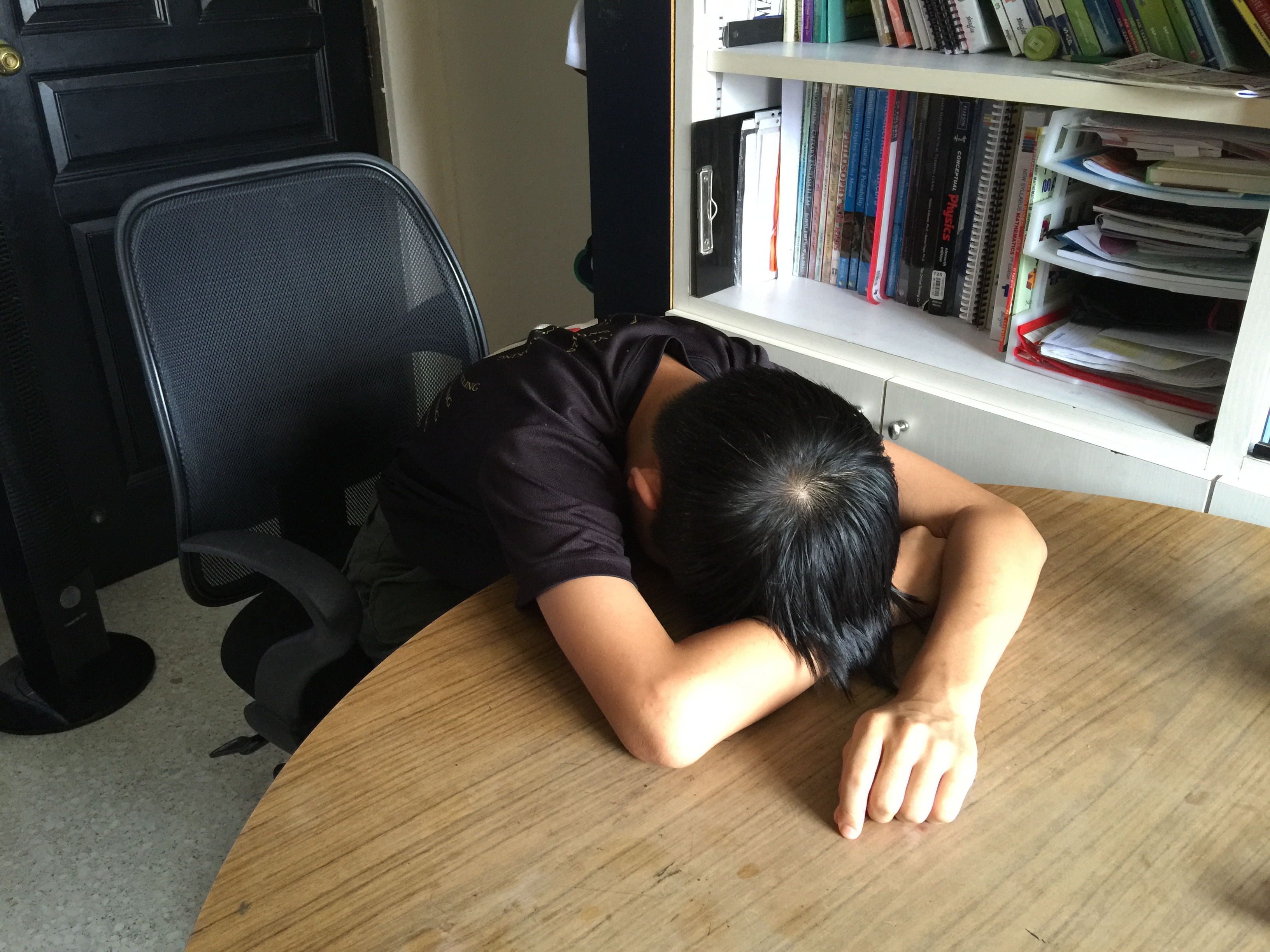I have had many parents ask me how they can get their teens to talk to them. They feel that their teens have shut them out of their lives.
As much as these parents want to be a part of their teens’ lives and be there to help and guide them, they feel extremely handicapped not knowing what their teens are thinking about, how they are feeling or what they are going through because the latter is not sharing anything.
It is my belief that our children do not suddenly stop talking to us because they have grown up. Of course, I do not expect the teens to tell us everything as they had done when they were younger. But if they completely stop telling us anything of consequence, it is a worrying sign.
That is when we want to think about our interactions with them to see if we have contributed to them being uncommunicative towards us.
1) Vunerability
When our children come to us with problems or complaints, how do we respond? Do we show empathy and help them solve their problems? Do we tend to insinuate that they are at fault?
What do we do when our children show us their vulnerability?
Of course there are times they are at fault and it is our responsibility to show them that. However, the manner in which that is done is critical.
If coming to us result in harsh words or punishment from us, they learn not to come to us because they do not want to have salt rubbed on their wounds. That can potentially lead to disastrous results or even suicides if their problems snowball into something they feel is beyond their ability to solve and they feel they have no one to turn to.
So what can we do?
We can still teach them that they are in the wrong, but it need not be done harshly. We can empathise with why they do what they did and lovingly guide them on the corrective actions to take. That way, they will feel safe coming to us with problems in the future. The idea here is to let our children know they are not alone and we are always available to help them.
Of course I am not advocating that we bail our children out of their problems. Our availability to help them does not mean we solve their problems. Instead, it means we are available for them to bounce off ideas or to explore solutions that THEY themselves can execute. We offer the guidance and experience and we are supportive of them cleaning up their messes.
When our children feel they can count on our support and love when they encounter problems, they will not hesitate to talk to us.
2) Reality
When our children come to us with problems we cannot do anything about, do we tell them to “suck it up” since they need to learn how to deal with it from young?
What do we do when our children encounter the realities of the world?
Again, it depends on how we help them absorb the lesson that there are some things in the world we cannot do anything about. Yes, there are some things we need our children to learn from young, like needing to put in effort to get results or there are bullies out there and we need to learn how to deal with that.
However, just telling the child to “suck it up” is as good as telling them they are alone and we cannot anything to help them. Then they learn they need not come and tell us anything because they already know our answer: “suck it up”.
Instead, we can teach them what they can do in such situations. For example, if they meet with a bully, instead of telling them to suck it up because bullies are everywhere, we can teach them how to deal with a bully, or how to bring the bullying to the attention of those who can do something about it, or how to empathise with a bully.
When my son was 5 years old, he told me there was a bully in his class who picked on him (the bully was a head taller than my son). I could have done a few things. One was tell my son to “suck it up” because bullies exist. Or I could complain to the teachers about it. Or I could teach my son how to handle it.
While I was concerned about the bullying, I knew that the bully had come from a troubled home. So I explained to my son that because the boy felt unloved and helpless at home, and probably bullied as well, he wanted to feel powerful in school. That was why he came to school and terrorized the smaller kids. I also told my son that it was best he steered clear from the bully’s path and if he was bullied again, to bring it to the attention to his teacher immediately. My intention was to help my son empathise with the troubled child, yet at the same time, learn to protect himself.
Instead, my son did something that surprised me. With the knowledge of the bully’s troubled background, my son went to school and convinced another friend of his to approach the bully together. My son then told the bully that they would be his friends and that they would help him feel loved so he would not feel the need to bully other children. I was very touched when he told me that his plan succeeded and that they became friends after that and more importantly, that the bully stopped terrorizing other children.
I understand that not all bullies are that easily “converted” and there are some who are just really mean and violent. Of course learning how to protect themselves from violent bullies are also important lessons to teach our children. However, many a time, a little love and empathy can go a long way.
When we are empathetic towards our children when they come to us with “realities of the world” they have to face at some point, they feel safe talking to us. And the safer they feel talking to us, the more they will communicate with us.
3) Achievement
How do we react when our children do well, be it getting good grades, achieving an award, and so on? Do we praise them? Do we give them rewards and tell them how proud we are of them? Now, how do we react when our children DO NOT do well? Do we berate or punish them? Do we take away some privileges or tell them we are disappointed in them?
What do we do with their achievement or lack of achievement?
Most of us celebrate our children’s success and achievements, and rightly so, because we want our children to know we are proud of them. However, I would suggest not to overdo the celebration and praises as we do not want to undermine our children’s inherent pride in themselves by having them rely too much on our reactions to their successes.
What is more important, in my view, is what we do when they fail.
When our children fail to achieve, it is understandable that we are disappointed. It is also understandable that we want to spur them on. The question is how can we spur them on in a manner that is motivational? How can we still let our children feel our love even if they have messed up?
I have always believed that when my children fail in something they want to do, that in itself is “punishment” enough for them. They already feel disappointed in the outcome and most of the time, they are disappointed in themselves. I do not feel the need to add misery to them by berating or punishing them.
Instead I do my best to help them see what they can do differently the next time. More importantly, I acknowledge them for the efforts they have put in and remind them that failures are only failures if they fail to learn anything from them. So now my children know that if they do not get something right, they are learning, not failing.
If our children feel our love is conditional upon their good behavior or achievement, they will not share with us problems that they feel will make us disappointed in them. Hence to have them remain communicative with us, it is important they know we love them unconditionally.
4) Acceptance
What do we do if our children have different views / perspectives / opinions from us? Do we tell them “it’s my way or the highway”? Or do we let them hold those views?
In other words, do our children feel accepted for who they are?
As our children mature, they will develop their own identity, their own “calling”, their own stand. It is understandable we feel we know best and that it is in their interest that they hold the same views we do.
However, if we insist “it’s my way or the highway”, we can almost guarantee that our children will feel isolated from us. Outwardly, they could still hold our view, but inwardly they either struggle to reconcile the differences, or they do whatever they feel is right out of our sight. And we would never hear them talking about that, no matter how dangerous their beliefs could be.
It is an extremely hard walk to take when we are dealing with our children who have different views from us. It could range from religion to politics to even basic safety. But would it be possible for us to agree to disagree, for us to still show our love despite our differences? That will be a true challenge to our love, won’t it?
Personally, I have not come to that bridge yet and I am thankful for that. But I have told my children that my love for them is unconditional and even if they hold fundamentally different views and beliefs from me, I will still love them with all my heart. I have also told them I will want to know what their views and beliefs are, not so I can change their minds, but so I can understand them and love them better.
I keep my fingers (and toes) crossed that the love I have for my children is strong enough for me to hold on to that promise.
When our children know they can count on our love even if they do not see eye to eye with us, they will feel safe communicating with us.
Conclusion
If we teach our children with love and empathy, they learn that problems are not the end of the world. They learn that problems can be overcome, that problems are hidden lessons, that problems are opportunities for loved ones to rally together to build one another up. They learn that they are not alone in facing the world or their problems. They learn that they are still worthy of our love regardless.
And when our children learn that, we need not worry they will stop communicating with us. Why? The reason is simple. We tend to share our problems and troubles with people whom we know love us regardless. And these very people whom we can share bad news with are usually the first we would share good news with. And what this means is communication will never cease.
So my question to you is this: Can your children share bad news or problems with you without worrying they will be scolded or punished?
– Vivian Kwek –


